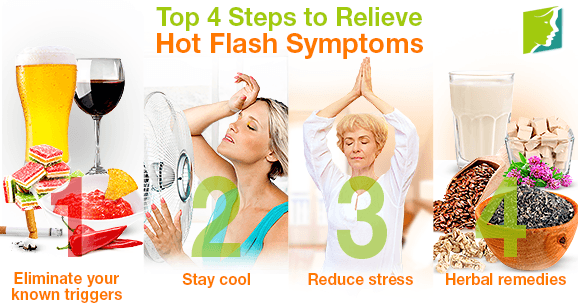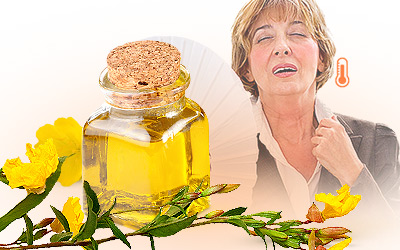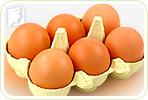Hot flashes are an extremely common symptom of menopause, and many women experience them on a daily basis, even multiple times a day. The sensation of abrupt heat and constraint experienced can be exhausting and sometimes scary. Hot flashes are caused by reduced estrogen levels, which alert the hypothalamus in the brain, which is in charge of regulating body temperature. As a result, your internal temperature rises, your heart begins to pound, and sweat pours.
To avoid intense episodes and prevent them from escalating to more serious side effects like dizziness and panic, please read the following steps, which are regarded as safe, easy, and effective solutions.
Eliminate Your Known Triggers
Triggers are a primary cause for overwhelming rushes. Cigarettes, alcohol, excessive sugar, and spicy foods are among the most common triggers for hot flashes. They can quickly increase your body temperature.
Cigarettes and spicy food should be eliminated altogether. While it is known that some spicy foods have many great health benefits, the cost may be higher than the benefits during this time. Alcohol and sugar are also best kept at a minimum. If you want something sweet, try opting for raw fruits whenever possible. If you're out with friends, limit yourself to one drink.
Stay Cool
Although this seems obvious, it is easy to momentarily forget about it, which may bring flustering results. It is important to keep your house and body cool at all times. When at home, make sure to keep each room de-cluttered, well-ventilated, and chilly.
When going out for the day, choose light clothes with loose layers that can be easily removed in case an abrupt environment change should occur. Even during the winter, it is best to keep a light bottom layer, because the drastic difference between the outdoors and a heated indoors can cause trouble. It is also a good idea to carry a portable fan - there are many models that double as a fashion statement - and keep it readily available at all times.
Reduce Stress
Study after study has shown that women with anxiety or who tend to accumulate excessive levels of stress tend to experience much worse and more frequent hot flashes. The effect that stress has on your body is very similar to the effect of hormonal imbalance, and puts your body into “overdrive” while affecting heart rate, sleep quality, and heat regulation. Likewise, high levels of stress cause your breath to become shallower, and may precipitate a panic attack or dizziness.
Practice 15 to 20 minutes of deep breathing and meditation exercises every day to keep your cool. Close your eyes, put on calming music, and deeply inhale for five seconds; then exhale for five seconds into your belly.
Herbal Remedies
Start right from the core issue during menopause by restoring lost estrogen in the body. This will regulate the hypothalamus and prevent adrenaline and cortisol levels from skyrocketing. Since these hormones are also liked to the maintenance of hot flash symptoms, relief can be significant.
Herbs like soy, flax, black cohosh, red clover, and dong quai are full of phytoestrogens. This means that they contain natural compounds that are identical or nearly-identical to human estrogen, and thus can be received by the same receptors in the body, providing the same effects that the sex hormone does. Find these plants whole, dried, or supplemented for a profound decrease in hot flashes.
It is important to keep hot flashes from taking over your lifes. Knowing which proper steps to chill out will allow you to be calmer, happier, and for treacherous heat stay clear of your productivity throughout the day. These solutions are known to provide relief, so try them one by one and see which you want to incorporate for the long term. For more information about hot flashes and how to treat them, please navigate the links below.
Sources
- Carmody, J. , Crawford, S. & Churchill, L.. (2006). A Pilot Study of Mindfulness-based Stress Reduction for Hot Flashes. Menopause, 13(5), 760-769. Retrieved from http://www.ncbi.nlm.nih.gov/pubmed/16932242
- National Center for Complementary and Alternative Medicine. (2014). Soy. Retrieved March 20, 2014, from http://nccam.nih.gov/health/soy
- National Institutes of Health. (2012). Dong quai. Retrieved March 20, 2014, from http://www.nlm.nih.gov/medlineplus/druginfo/natural/936.html
- Office of Dietary Supplements. (2008). Black Cohosh. Retrieved March 20, 2014, from http://ods.od.nih.gov/factsheets/BlackCohosh-HealthProfessional/
- Schilling, C. et al. (2007). Current Alcohol Use, Hormone Levels, and Hot Flashes in Midlife Women. Fertility and sterility, 87(6), 1483-1486. doi: 10.1016/j.fertnstert.2006.11.033
- Sood, R. et al. (2013). Paced Breathing Compared with Usual Breathing for Hot Flashes. Menopause, 20(2), 179-184. doi: 10.1097/gme.0b013e31826934b6
- Whiteman, M.K. et al. (2003). Smoking, Body Mass, and Hot Flashes in Midlife Women. Obstetrics and gynecology, 101(2), 264-272. Retrieved from http://www.ncbi.nlm.nih.gov/pubmed/12576249




